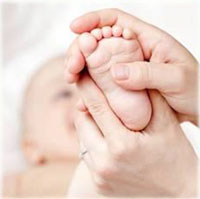Egg Donation

Many women, regardless of being in their fertile age, have a problem that does not allow them to produce eggs (oocytes) regularly, thus having reproduction issues.
This includes women whose ovaries have stopped working, or are very close to this moment, and women who, due to various diseases, have been forced to undergo ovary removal (oophorectomy).
The first group includes women with premature menopause and those close to menopause. The second group includes patients with tumors, cysts, or ovarian or breast cancer who have undergone surgical removal of the ovaries.
For both these groups, the only possibility to get pregnant is egg donation from another woman. These eggs will be fertilized through in vitro fertilization in the laboratory with the husband's sperm, and the embryos that will be formed will be transferred to the recipient woman's uterus. In this way, although the recipient female will not be the genetic mother of the child, she will still be the mother who will give birth and consequently the biological mother.
In this way, although the recipient female will not be the genetic mother, she will still be the mother who will give birth and consequently the biological mother.
Choosing the donor
The choice of the donor is the competence of the medical team and is based on finding as much phenotypic similarity with the recipient as possible.
The donor remains anonymous; her identity is absolutely protected by the clinic.
What are the conditions a woman must meet to donate eggs?
- Be between 18 and 35 years old.
- Have a normal ovarian function
- Should not have any kind of genetic disease in the family.
- Undergo the analyses required by the medical team. These analyses are free and moreover, they are very valuable for the donor's own health as well.
What analyses are offered to the donor?

- Gynecological visit
- Transvaginal ultrasound
- Pap-Test.
- Blood group with determination of Rhesus factor.
- Hemoleukogram
- Routine biochemical analyses
- Testing for sexually transmitted diseases:
- HCV (Hepatitis C)
- HbsAg (Hepatitis B)
- HIV (AIDS)
- VDRL (Syphilis)
- Hemoglobin electrophoresis
- Hormonal analyses
- Genetic analyses:
- Karyotype
- Cystic fibrosis